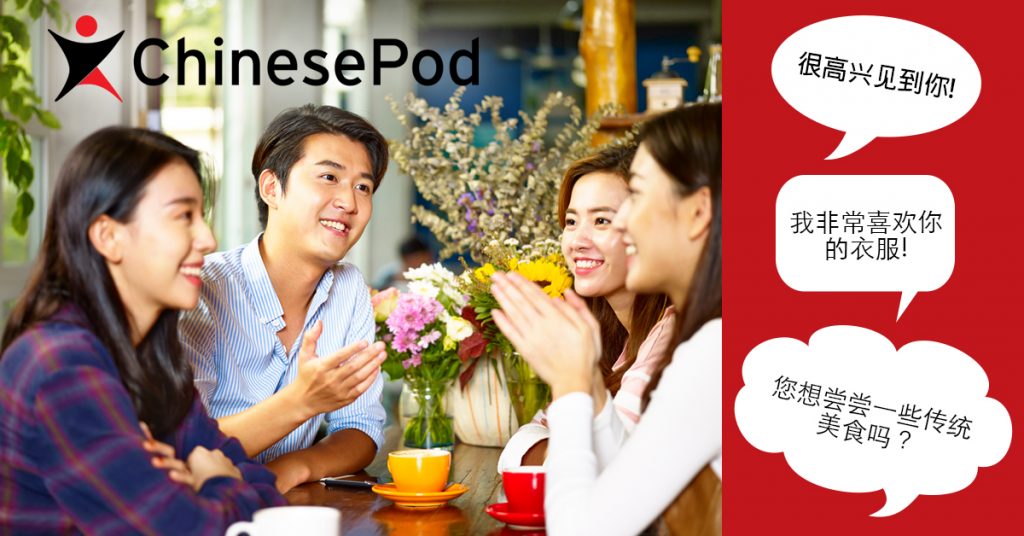What do leftover eggs have to do with Christmas?
The 圣诞 shèngdàn in 圣诞节 shèngdànjié (Christmas) sounds like 剩蛋 shèng dàn (leftover eggs). Here we have a commonly used Chinese pun for Christmas: 剩蛋节 shèngdànjié (Leftover Eggs Festival). Homophones — words that sound the same but have different meanings — often create unanticipated laugh-out-loud situations in Chinese. They have scintillated hip-hop heads for decades, yet the technical term may have remained overlooked. Here are two examples from pun-lover Jay-Z:
“I’m not a businessman,
I’m a business, man”
“We get together like a choir
To acquire what we desire” [1]
We see that “a choir” and “acquire” sound the same and have different meanings. It is marked as a homophone. Can you spot the homophones in Khalil Fong’s “Love Song” below?
“如果你是一幅画
Rúguǒ nǐ shì yī fú huà
If you were a painting
你会是最珍贵的一幅画
Nǐ huì shì zuì zhēn guì de yī fú huà
You would be the most valuable painting
如果那画家是梵高的话
Rúguǒ nà huà jiā shì Fàngāo de huà
If that painter was Van Gogh
有何贵人前来又献花
Yǒu hé guì rén qián lái yòu xiàn huā
Who will send flowers to him”
The homophones are 画 (huà painting ), 话 (huà words), and 花(huā flower). It should be noted 话 does not mean “words” here, because in this context it functions together with “if” 如果. . . 的话. With homophones, sometimes an uncertain context generates confusion. Taking the Beijing train with two native Chinese speakers a few years ago, I caught them in the corner of my eye frantically waving in the air. As I stared, my mind began to differentiate between what seemed to be mindless waiving and writing. They were writing Chinese characters in the air, strenuously trying to get their meaning across. It finally clicked for them after a few attempts. Homophone spotted. Want a fitting description of a Chinese Christmas from my foreign perspective? I would say it is similar to a homophone — both comical and confounding.
Chinese Christmas is comical to me when I consider the obstacles people will traverse to deliver or enjoy the Christmas experience. Disney’s Sparkling Christmas in Hong Kong promises an all-out immersive Christmas experience complete with “carols,” “decorations,” and “snowfall,” even though there have not been reports of natural snowfall there since the 1960s and 1970s [2][3]. To top it all off, they created “Christmas Town”. This is an awful lot of work. Beijing’s traffic jam warnings do not deter the hardcore fun-seeker — which shows just how widespread Christmas has become. “Some areas in Beijing may experience peak-hour traffic conditions up until midnight. Commercial districts, bar streets, places with a concentration of entertainment and dining venues and areas around some churches may experience traffic jams” [4]. The two examples above illustrate how Chinese non-Christians celebrate (庆祝qìngzhù) Christmas in China: young people tend to celebrate Christmas outside; however, in America, people tend to celebrate it at home. Cacophonous voices — including mine — will flood the karaoke scene.
Christmas is also confounding. Picture this. Chinese children amble around Santa (圣诞老人shèngdànlăorén). The six foot tall wire-frame stands underneath book-sized Christmas trees twirling on strings overhead. Iridescent gifts and a glittering golden reindeer illuminate the entrance. The holiday décor conjures the holiday spirit — what Norman Vincent Peale describes as “a magic wand” that “waves over this world, and behold, everything is softer and more beautiful.” Something about the collection of Christmas objects seems amiss, though. Something that remains nearly ubiquitous in the American South. That notable something has inspired centuries of Christian art: a Nativity scene. The children recognize Santa, the Christmas trees, and reindeer, but they do not know the religious origin of Christmas, nor do the majority of their parents. Often, the older they are, the less they know.
How did non-Christian Chinese come to integrate Christmas into their lives? Study-abroad programs contribute to Christmas’ growing popularity among young people, because many of them return to China and celebrate it with friends and family [5]. Other drivers include more foreigners moving to China, Chinese learning about Western culture via their school’s English classes, and the commercialization of Christmas by KFC and other businesses. I would also include Western media, such as The Big Bang Theory, which is wildly popular in China. While gift-giving is prominent in projections of Christmas to Chinese audiences, I suspect the reason I have not seen this practice much for Chinese Christmas is because Chinese holidays already occupy that space.
So what do leftover eggs have to do with Christmas? They show the fun (or horrible) aspects of the Chinese language.
Key Chinese Language Concept
Homophones, which are words that sound the same but have different meanings, are commonly used in Chinese to form puns.
剩蛋节 shèngdànjié (Leftover Eggs Festival)
圣诞节 shèngdànjié (Christmas)
Near-homophones — which are words that nearly sound the same — are popular in Chinese rap songs. See Chinese rap artist Soft Lipa.
Sources
[1] “Top Ten Homophone Rhymes of All Time.” Genius. Web. Accessed December 20, 2016.
http://genius.com/posts/48-Rhyming-words-with-themselves-sort-of-top-ten-homophone-rhymes-of-all-time
[2] “Disney’s Sparkling Christmas.” Hong Kong Disneyland. Web. Accessed December 20, 2016. https://www.hongkongdisneyland.com/events/disneys-sparkling-christmas/
[3] Wong Tak-kan. “Last time it snowed in Hong Kong.” Accessed December 13, 2016. http://www.hko.gov.hk/education/edu01met/wxobs/ele_snow_e.htm
[4] Goldkorn, Jeremy. “Christmas Eve in Beijing 北京平安之夜.” December 24, 2012. Web. Accessed December 13, 2016. https://www.thechinastory.org/2012/12/christmas-eve-in-beijing/
[5] Hunwick, Robert. “Why Christmas is Huge in China.” The Atlantic. December 24, 2014. Web. Accessed December 9, 2016. http://www.theatlantic.com/international/archive/2014/12/why-christmas-is-huge-in-china/384040/
Joshua Webb
Latest posts by Joshua Webb (see all)
- Top 7 Chinese Hip-hop Artists - August 2, 2017
- Cherishing Jade: Some Fun Dating Ideas To Try In Beijing - February 21, 2017
- What do leftover eggs have to do with Christmas? - December 22, 2016


